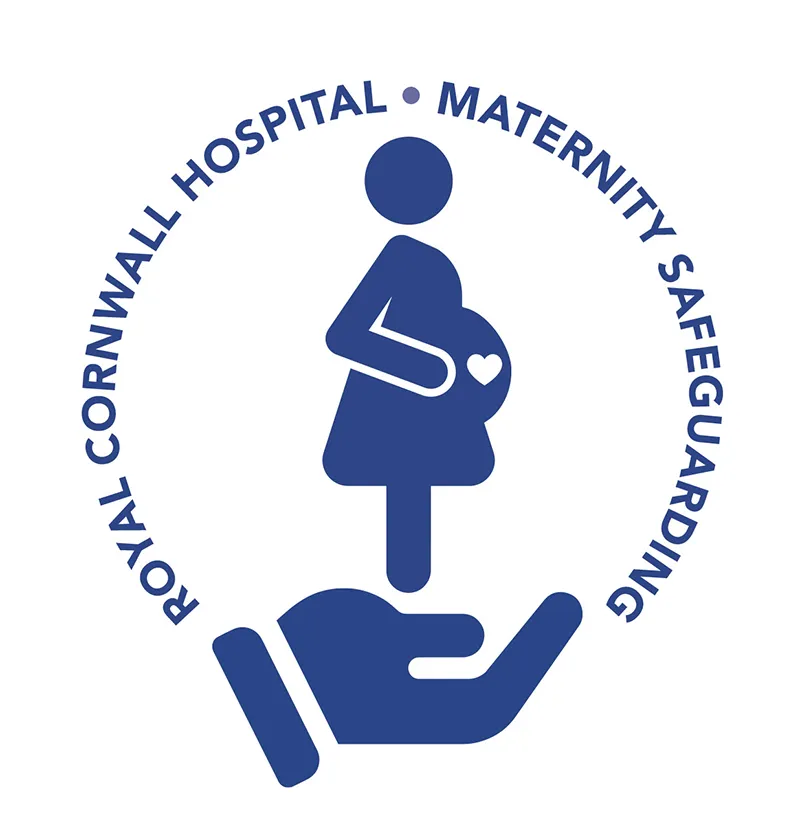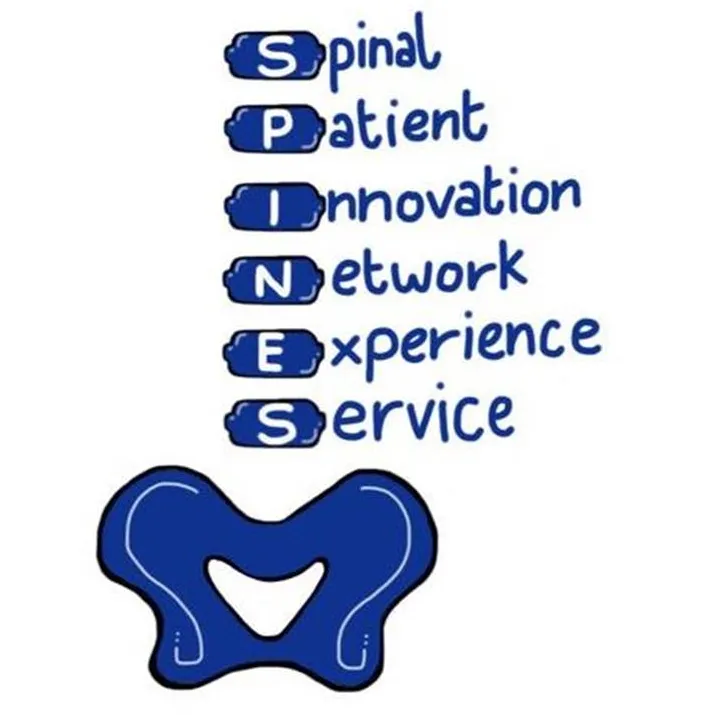Page contents

The Safeguarding Services team supports our staff to care for patients who are at risk, and to help them fulfil their responsibilities if abuse or harm is suspected, identified or disclosed.
Safeguarding Services are based at Royal Cornwall Hospital and encompass the following teams.
Integrated Admiral Nurse Service
Admiral Nurse will support carers and families of a person with dementia when they are admitted to Royal Cornwall Hospital, St. Michael’s Hospital or West Cornwall Hospital
Policies and Guidelines
Please click here to view Admiral Nurse policies.
Contact information
The Admiral Nurse can be contacted via switchboard.
Supported Ahead Programme (SAP)
The Supporting Ahead Programme (SAP) has been developed to support carers and family members of people with a dementia diagnosis during their stay in an acute setting.
The SAP sessions are held four times a year. If you would like to have details of when our next sessions are, please contact 07823 535934 to speak to the Admiral Nurse.
Caring for carers
Adult Safeguarding
We work as part of a multi-agency team to safeguard people who are at risk and meet our legal obligations as set in legislation such as the Care Act 2014. Abuse is a violation of an individual’s human and civil rights by an act, or a failure to act, on the part of another person or persons.
Categories of abuse:
- Discrimination
- Domestic Abuse
- Financial abuse
- Modern Slavery
- Neglect
- Organisational abuse
- Physical Abuse
- Psychological abuse
- Self-Neglect
- Sexual abuse
Policies and Guidelines
Please click here to view Adult Safeguarding policies.
Working together with Cornwall Council
Caring for carers
Please click here to view our ‘Caring for carers’ page.
Contact Information
Adult Safeguarding can be contacted via switchboard.
Homeless Hospital Discharge Service
If there is a patient who is homeless or cannot return to their previous home, the Homeless Patient Advisors can offer advice and assistance. They can liaise with community services, housing providers and the patient’s family or landlord, to help them return home or find alternative accommodation. The Advisors support homeless patients who are struggling to remain in hospital and are at risk of discharging themselves against medical advice. It can be difficult for someone who has an entrenched homeless lifestyle to engage with professionals in a way that is conducive to the hospital environment. We will support those patients and try to reduce any stressful factors.
Policies and Guidelines
Please click here to view Homeless Patient Advisor policies.
Contact Information
The Homeless Patient Advisors can be contacted via switchboard.
Inclusion Matters Hospital Discharge Service
The Inclusion Matters Hospital Discharge Service can support you with your practical and social needs to prepare for a hospital admission or post hospital discharge. This service aims to reach individuals that are socially isolated who have little support from family and friends. Our friendly Hospital Discharge Inclusion Officer can act as a helpful point of contact providing useful advice, guidance and support to promote a good recovery.
We can help with the following:
- Identify safety concerns in the home
- Provide information to keep your home warm
- Collect your shopping or prescriptions
- Support with transport options
- Signpost to community services and activities
- Signpost to information and advice on finances, including welfare entitlements
- Arranging for someone to call round for a chat
Contact information
Self-referrals can be made by contacting the Inclusion Matters Hospital Discharge Service direct on:
- Mobile: 07590362024 (Monday to Friday 9am to 3pm).
Inclusion Matters
This service is part of the Inclusion Matters service. Inclusion Matters can help you further after discharge if you would like to find out more about social activities in your area or health related groups to help you stay healthy and active, and reduce the likelihood of re-admission. Please phone our helpline on 01872 266383 or search Cornwall Link for more information.
Domestic Abuse and Sexual Violence
This service:
- Provides immediate support and advice to victims of domestic abuse that present in the hospital, with priority given to patients that are at high risk of serious injury or death
- Links these individuals and families to longer-term community support, and signposts to therapy and recovery services
- Provide hospital staff with training and knowledge so they have the confidence to routinely ask their patients about domestic abuse
Policies and Guidelines
- Please click here to view the Domestic Abuse and Sexual Violence Policy.
- Domestic Abuse and Sexual Violence Clinical Guideline for Maternity Staff
Resources
- Safer Futures Helpline response team for Domestic Abuse:
The helpline is a gateway to specialist programmes and provides a single point of contact for services, users and referring professionals. The team are trained to take domestic abuse and sexual violence enquiries and quickly assess the risks and support needs presented by clients. They carry out risk assessments and prepare support safety plans for each eligible victim. The team signpost people who are not eligible for the service to other agencies for support.
Contact Information
The IDVA can be contacted via switchboard.
Independent Mental Capacity Advocate (IMCA)
Independent Advocacy is provided by The Advocacy People.
When someone is admitted to hospital they can be detained under the Mental Health Act. This can be very distressing, and sometimes people who are being detained feel powerless and unable to ask questions or get information. Independent advocacy can help; the support of a trained advocate can help someone understand:
- Why they have been detained
- Their rights under the Mental Health Act
- Ensure their views and wishes are taken into account by professional staff involved in their care and treatment
Policies and Guidelines
Please click here to view Independent Mental Capacity Advocate (IMCA) policies.
Contact Information
- Tel: 0330 440 9000
- Email: info@theadvocacypeople.org.uk
- Fax: 01424 204687
- Text: send the keyword SEAP to 80800, followed by your message
- Web: https://www.theadvocacypeople.org.uk/
Learning Disabilities and Autism, Acute Liaison
By supporting individuals with learning disabilities, we can make sure they get high quality services in hospital, and real choice and control over their care.
Policies and Guidelines
Please click here to view Learning Disabilities and Autism, Acute Liaison policies.
Going to Hospital booklets
- Children: Going to Hospital (RCHT1799)
- Adults: Going to Hospital (RCHT2028)
These are accessible publications for patients with a learning disability or autism. These aim to help people with additional needs to know what they might expect to see when visiting hospital for an appointment or when being admitted for a procedure.
These initiatives are pieces of work by co-authors Jane Rees from the NHS Learning Disability Nursing and Safeguarding Team at RCH Treliske and Angie Emrys-Jones, Publications Lead of Cornwall Down’s Syndrome Support Group.
These booklets are easy read, use Makaton symbols throughout to support images, and will be available shortly in hard copy which will be sent out to patients known to the Learning Disability Team at RCHT ahead of appointments or hospital admissions.
A Makaton downloadable resource to accompany the books will be freely available to both patients and staff. It is intended that wards use the resource to provide ‘now and next’ boards with a timeline of treatment – medicine/operation/sleep/wake up/eat/drink/toilet/home etc. therefore creating a visual timetable for patients who need more support to embed their understanding and manage expectations of procedures or admissions etc.
Resources to support you
- Acute Liaison Service For Learning Disabilities (RCHT1198)
- Carer’s Passport (RCHT1779)
- Death by indifference – Report published by MENCAP
- Information for carers (RCHT1235)
- My autism hospital passport – a resource for people with autism who might need hospital treatment, published by the National Autistic Society
- This is my Hospital Passport – for people with autism coming into hospital (CHA4720)
- This is my Hospital Passport – for people with a learning disability coming into hospital (CHA4375)
Caring for carers
Please click here to view our ‘Caring for carers’ page.
Contact Information
- Telephone: 01872 255741 or 07765 221848 (8am to 5pm, Monday to Friday. 9am to 4pm, Saturday and Sunday)
- Jane Rees, Team Manager: 07584 770351
- Adrian Quest, Acute Liaison Nurse: 07827 897252
- Email: rch-tr.LearningDisabilities@nhs.net
We are available at:
Please note: attendance at St Michael’s and West Cornwall will need to be arranged prior to appointments as we are based in Truro.
Maternity Safeguarding

Pregnancy and birth are a crucial time for change – what happens in the womb can last a lifetime. There are increasing numbers of families with complex social factors and safeguarding concerns. Maternity Safeguarding plays a key role in early identification, assessment of risks and providing appropriate support and referrals, making sure women and children are protected from harm.
Policies and Guidelines
Please click here to view Maternity Safeguarding policies.
Contact Information
The named Midwives for Safeguarding can be contacted via switchboard.
For further advice:
- Contact the Multi-Agency Referral Unit (MARU)
- Telephone: 0300 123 1116
Mental Capacity Act and Deprivation of Liberty Safeguards (DoLS)
We monitor the application of DoLS within the hospital following guidelines set out in the Mental Capacity Act 2005 and the DoLS Code of Practice (DH supplement) 2008.
Policies and Guidelines
Please click here to view Mental Capacity Act and Deprivation of Liberty Safeguards (DoLS) policies.
Contact Information
The Lead Nurse or Co-ordinator can be contacted via switchboard.
Mental Health and Wellbeing
The hospital Mental Health and Wellbeing service are here to help people with mental health concerns access the hospital. We offer support and reasonable adjustments to people with mental health problems in Royal Cornwall Hospital, West Cornwall Hospital and/or St. Michael’s Hospital. We want your hospital experience to be good. We want you to feel safe and comfortable. We want you to feel you were listened to and treated with respect. We do not want you to have a bad experience or a different standard of care because you have a mental health problem. We will help to arrange your admission or put plans in place during your stay.
Policies and Guidelines
Please click here to view Mental Health and Wellbeing policies.
Caring for carers
Please click here to view our ‘Caring for carers’ page.
Contact Information
Mental Health and Wellbeing can be contacted via switchboard.
Prevent (Counter Terrorism)
Terrorist-related activity is not a subject normally associated with the health service; however, the health sector is in a key position to support susceptible individuals. The Department of Health recognises the NHS nationally has more person-to-person contact than any other agency in the whole of the UK. We all have a role in ensuring our communities remain safe.
Radicalisation is a new category of adult abuse and sits in Safeguarding for both adults and children.
CONTEST is the UK’s Strategy for Countering Terrorism and is divided into four strands (the four P’s):
- Protect – strengthening our borders, infrastructure, buildings and public spaces from an attack.
- Prepare – where an attack cannot be stopped, to reduce its impact by ensuring we can respond effectively.
- Pursue – to disrupt or stop terrorist attacks.
- Prevent – aims to stop people becoming terrorists or supporting terrorism. It has been described as “the only long term solution” to the threat we currently face from terrorism.
The Prevent strategy focuses on three broad objectives:
- Respond to the ideological challenge of terrorism and the threat we face from those who promote it.
- Prevent people from being drawn into terrorism and ensure that they are given appropriate advice and support.
- Work with sectors and institutions where there are risks of radicalisation which we need to address.
There is less of a threat in Cornwall from Islamist extremist ideology than in other parts of the UK, but this still remains a possibility. Locally we need to be alert to the increase in extreme right-wing groups / ideology currently.
What forms can extremist activity take?
Extremist activity is a sign someone is likely to have been radicalised (or is in the process of being radicalised), and so is at risk of engaging in or supporting terrorism.
Examples of extremist activity can include:
- Giving out leaflets or displaying posters with violent extremist messages.
- Looking at violent extremist forums or websites on the internet.
- Engaging with violent extremist groups on social media.
- Attending meetings in private homes or community centres.
- Watching terrorist or violent extremist promotional videos.
- Taking part in demonstrations or giving speeches.
- Downloading terrorist manuals, for example, on making explosive devices.
- Fundraising for extremist groups.
- Online posting which promote extremist messages, or glorify violence or acts of terrorism.
- Engaging in training, or travelling to conflict zones to take part in, or support guerrilla / military activity or to join groups such as ISIS – or making plans for travel.
Where healthcare workers encounter someone who may be in the process of being radicalised towards terrorism, it is vital that the individual is appropriately supported.
Prevent operates in a pre-criminal space, before any criminal activity has taken place. Prevent is about supporting and protecting those people that might be susceptible to radicalisation, ensuring that individuals are diverted away before the crime is committed.
Channel is a key strand of the Prevent Strategy. It is an early intervention multi-agency approach to safeguarding people at risk of radicalisation and providing early intervention to protect and divert them away from the risk of committing criminal acts. Intervention may include diversionary activities such as sport, or aim to support an individual for example, with health, education, housing or employment. Targeted interventions might include the opportunity to meet with religious scholars. This would help to increase knowledge and understanding of doctrine in order to counter distorted and extremist interpretations of religious texts.
Channel is attended by Cornwall Partnership NHS Foundation Trust’s (CFT’s) Prevent Lead, representing RCHT also in this forum and clinicians are invited to attend (and supported) as and when needed.
Contact Information
Our staff has a responsibility to recognise and report possible concerns about radicalisation. This responsibility extends to reporting concerns about staff members as well.
- To report concerns to the Police, call 101.
- If there is an emergency, call 999 or the Anti-Terrorism Hotline on 0800 789 321.
Seek advice or make a Prevent referral if:
- You believe that someone may be at risk of radicalisation (either directly or online)
- You suspect someone is trying to radicalise a vulnerable person
If you need to make or discuss a Prevent referral, please contact the Prevent and Safeguarding Reviews Lead – Caroline Amukusana via the Integrated Safeguarding Services single point of access (SPOA) on 01872 255741:
If the Prevent Lead/Safeguarding team are unavailable or it is out of hours and you assess the concern cannot delay, please consider contacting the police and completing the Prevent National Referral Form.
Devon and Cornwall Police advice/information can be found here – Devon and Cornwall Police Prevent advice/information and the national referral form is accessed and completed online via the advice page, or here – Prevent National Referral Form.
Please send confirmation of a national referral submission to: caroline.amukusana@nhs.net (who will need to know of any referrals our staff are making).
Consent for referral is always preferred, but if you have any concerns about discussing with the person, or their parent or carer, or referral increasing any risks please do not let this deter you from referring. You can discuss these concerns with your line manager and/or The Trusts’ Prevent Lead or the Police. Consent is not required at the point of referral if you deem this will increase risk. Please make the referral and the Prevent team or Police will advise regarding consent once the initial information gathering by the Police (deconfliction) has taken place and any risks have been assessed.
The Prevent agenda at CFT and RCHT is proactive in delivering the Government’s Prevent strategy training, which aims to identify ways to prevent people becoming terrorists or supporting violent extremism.
We offer:
- ‘Prevent’ training, educating staff on the realities of extremism, hate groups and terrorist ideologies as well as encouraging debate and open conversation.
- Support and a contact for staff that may have concerns.
For further reading, please see the government’s Prevent duty guidance on their website.
Campaigns
Act Early

Is someone close becoming a stranger?
It can be hard to know what to do if you’re worried someone close is expressing extreme views or hatred, which could lead to them harming themselves or others. Working with other organisations, the police protect vulnerable people from being exploited by extremists through a Home Office programme called Prevent.
Act early and tell us your concerns in confidence. You won’t be wasting our time and you won’t ruin lives, but you might save them.
Share a concern
If you’re worried about someone, call the national police Prevent advice line 0800 011 3764, in confidence, to share your concerns with our specially trained Prevent officers.
This advice line is available every day 9:00am – 5:00pm. Calls outside these hours will be transferred to specialist Counter Terrorism officers.
If you’re deaf, hard of hearing or have a speech impairment, a police non-emergency number is available as a text phone service on 18001 101.
Remember in an emergency, please make sure you’re safe and dial 999.
Myth buster video
The home office is making myth buster online videos, featuring individuals, family and community members talking about Prevent and their experience of it:
Policies and Guidelines
Safeguarding Children
The Safeguarding Children team are passionately committed to empowering staff to provide safer, compassionate care to all our children and families. We are dedicated to keeping our community safe and positively impacting on the lives of all children and their families ensuring the child is at the centre of everything we do.
Our robust policies and effective guidance supports staff to meet our safeguarding standards. The Safeguarding Children team empower staff working with children and families to have the confidence to ask courageous questions with professional curiosity and act on the identified risk.
We always aim to work in an open, transparent and productive way to safeguard children and families. We employ a continued commitment to multiagency working, liaising where appropriate, sharing information and offering professional challenge in order to keep children safe.
Policies and Guidelines
Please click here to view Safeguarding Children policies.
Contact Information
Safeguarding Children can be contacted via switchboard.
Spinal Cord Injury

Patients and professionals working together to develop practice for Spinal Cord Injury patients.
Safeguarding Services are the central point of contact for patients with a spinal cord injury. We receive the ‘Patient Care Passport for Spinal Cord Injuries’ and liaise with the relevant wards on behalf of the patient.
For information about what support is available to you when you come to hospital, please view our information leaflet: Spinal cord injury – Support available when coming to hospital.
Contact Information
- Email: cft.safeguarding@nhs.net
Patient Care Hospital Passport for Spinal Cord Injuries
If you have a spinal cord injury, please complete our Patient Care Passport for Spinal Cord Injuries or alternatively email: cft.safeguarding@nhs.net to request a passport. This passport will alert staff that you have a spinal cord injury and help support any additional clinical needs you may have.
Documents and clinical guidance
- Carer’s Policy
- Carer’s Passport (RCHT 1779)
- Do you have a Spinal Cord Injury? (SCI) poster
- Helpful Instructions for using the SCI Passport
- Information for Carer’s (RCHT1235)
- Spinal Cord Injury – Support available when coming to hospital (RCHT1906)
Moving and handling
- Safe Moving and Handling of Spinal Injury Patients (Video)
- Moving and Handling of Patients and Inanimate Loads Policy
- Moving and Handling Patients with Actual or Suspected Spinal Cord Injuries (SCI)
- Please click here to view our information sheets
Useful Links
- British Association of Spinal Cord Injury Specialists
- Guidelines for Management of Neurogenic Bowel Dysfunction in Individuals with Central Neurological Conditions
- Personal assistants continuing to support people during a hospital admission
- The Royal Marsden Manual: Procedure Guidelines – Manual Evacuation of Faeces (Sign in with an OpenAthens account)
Salisbury NHS Foundation Trust
- Mobilising times following a change of cushion (Salisbury NHS Foundation Trust)
- Re-mobilising after a period of bedrest (Salisbury NHS Foundation Trust)
- Re-mobilising onto a healed pressure ulcer (Salisbury NHS Foundation Trust)
- The initial mobilisation of a SCI patient from the acute stage (Salisbury NHS Foundation Trust)
Spinal Injury Association (SIA)
- SCI Knowledge Hub
- For contact details of the Support Network Officer for the South West of England and to book a support session please click here
- For Our counselling service please click here. This is a free service available to SIA members.
Contact Information for Digital Rectal Evacuation of Faeces (DRE)
- For Surgical Care Practitioners please contact Switchboard on 01872 250000
- For Marie Therese House please contact 01736 758 879
Wheelchair Service
The Wheelchair Service supports adults and children who require a standard or specialist wheelchair, living in Cornwall or the Isles of Scilly. They assess people with long term mobility needs who require a wheelchair for longer than a period of 6 months. All equipment is provided on a long term loan basis for as long as your clinical need requires it. If you require a wheelchair, a GP or other health professional involved in your care can make a referral.
Caring for carers
We Are With You
Our We Are With You hospital team works intensely with individuals who regularly present with underlying drug and alcohol issues and are frequently transitioning between the hospital and the community. As well as our hospital in reach team, we offer community services in Truro, Penzance and Liskeard.
Contact information
- Hospital Office Hours Tel: via Switchboard (01872 250000)
- Truro Office Number: 01872 263001
- Out of hours: 03332 000325
Page last reviewed: 8 April 2024


